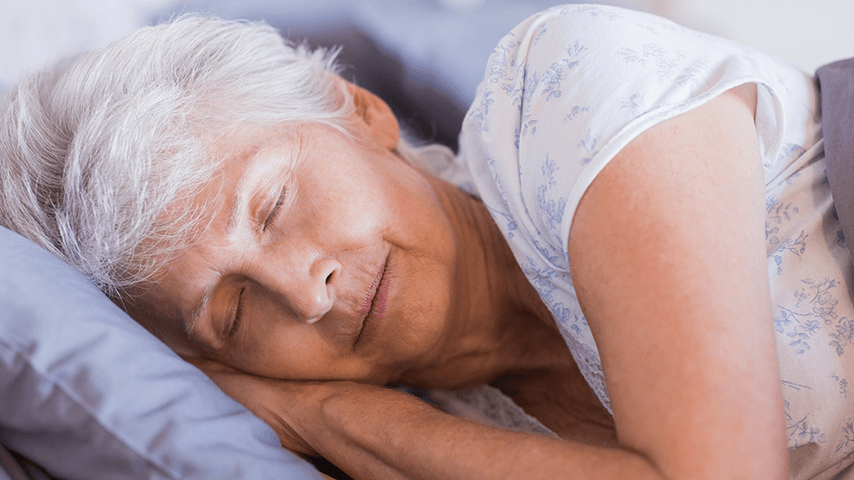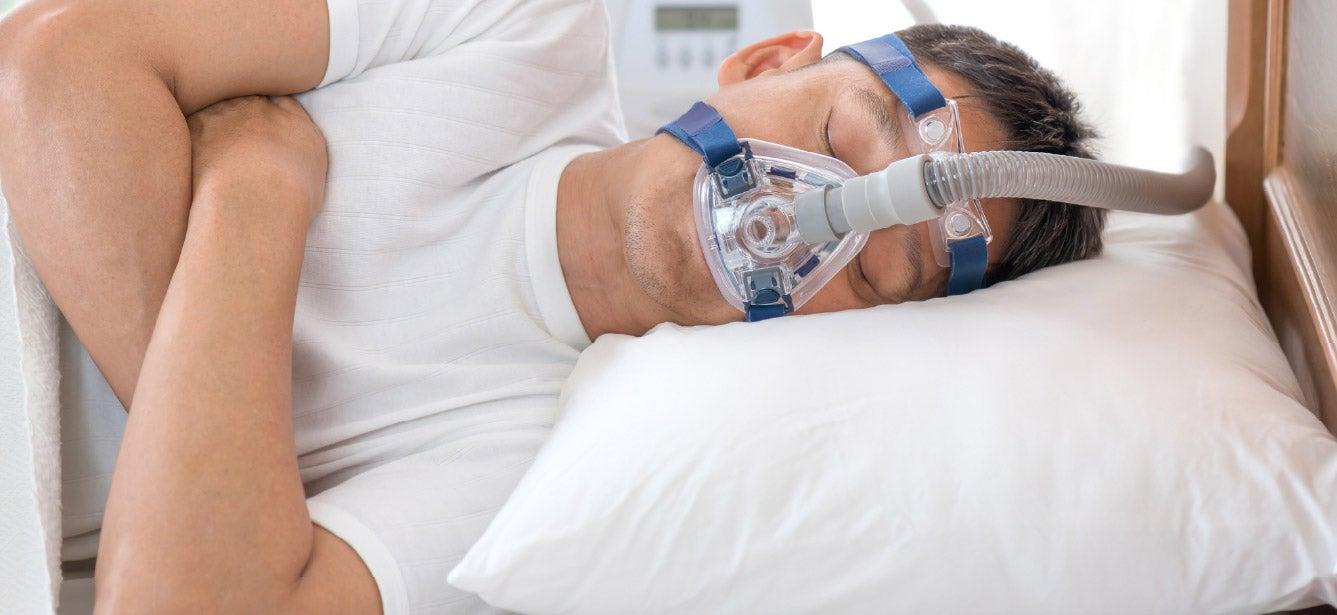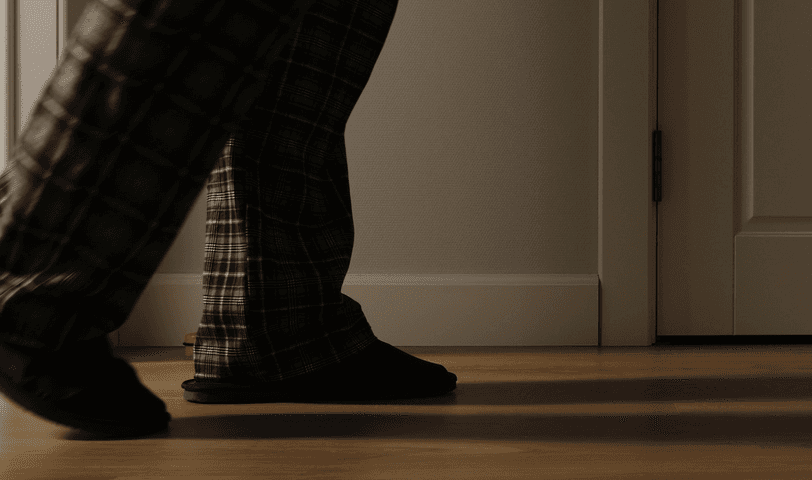
Related Topics
Have you memorized every blemish on your bedroom ceiling? Do you count sheep so often that you’ve begun to name them?
You’re in good company. Many of us occasionally experience “sleep onset insomnia”—the inability to doze off within 20 or so minutes after going to bed. And some of us often do. According to the National Health Interview Survey, up to 14.5% of American adults age 18 and over have trouble falling asleep most nights—or even every night—in the last 30 days.1
Also common? Worrying about being awake when we can’t get to sleep. Sleep anxiety doesn’t help with insomnia. But this comprehensive guide to falling asleep fast can.
Why falling asleep fast matters
Normal “sleep onset latency”—the time it takes to move between being awake and being asleep—is around 10–20 minutes.2 During this gray zone, which straddles the first and second stages of the sleep cycle, our minds and bodies relax. Our brain waves, heart rate, and muscle activity slow and our core temperature drops.
The actual process is a bit of a mystery. But the importance of sleep latency is not. When we can fall asleep fast, we enjoy longer and better-quality sleep.2,3
And the physical, mental, and cognitive health benefits of good sleep are hard to ignore and include:
- Less pain
- Fewer chronic illnesses
- Stronger immune system
- Improved focus
- Better memory
- Better balance
- And more
“Together, these things support our overall health and well-being,” explained Gretchen Dueñas-Tanbonliong, Associate Director of Health and Wellness at NCOA. “And consistent, good-quality sleep are important to our longevity, too.”
How to fall asleep faster: 10 tips for success
For occasional tossing-and-turning, experts recommend the following:
1. Create a consistent bedtime routine
Going to bed and getting up at around the same time every day reinforces your circadian rhythm—the 24-hour internal clock that tells you when to feel sleepy and when to wake up. Easy to say; harder to do. But certain strategies can help:
- Set a “bedtime reminder” on your phone
- Create a nightly ritual to signal it’s time to rest
- Program a wake-up alarm that repeats each day
2. Optimize your sleep space
It’s tempting to stream your favorite show, have a snack, or respond to emails from the comfort of your bedroom. But these things confuse your body clock and prevent you from winding down. Instead, create your own “sleep sanctuary” at bedtime:
- Turn off the lights
- Set a comfortable temperature
- Minimize noise and screen time
3. Unplug from screens
Speaking of: digital devices are bad for drifting off. Blue light suppresses melatonin, a hormone that signals it’s time to sleep; and “doom-scrolling” at bedtime is stressful. Try weaning off your phone, tablet, and laptop before turning in:
- Swap your e-reader for a hard copy or audio book
- Set a cutoff time for checking the news and social media
- Place your device(s) out of easy reach (or leave them in another room)
4. Watch your consumption
A full stomach or bladder can keep you uncomfortably awake—or interrupt you in the middle of the night. And, while alcohol, THC (cannabis), and other substances may send you into la-la-land, they may not keep you there. Do:
- Limit caffeinated coffees, teas, and sodas late in the day
- Save heavy meals for lunch; eat lighter fare for dinner
- Be mindful of when and how much you choose to drink
5. Follow the 4-7-8 breathing technique
Also known as pranayama, this practice can help banish intrusive thoughts and anxieties. While research is limited, some evidence suggests that it also promotes falling asleep faster. Sit comfortably, close your eyes, and repeat this pattern four times or more:
- Breathe in gently for a count of 4 seconds
- Hold your breath for a count of 7 seconds
- Exhale forcefully for 8 seconds
6. Practice the military method
Named for the notion that servicemembers need to conk out on command, the so-called “military method” claims you’ll fall asleep fast: possibly within two minutes. Does it work? For some people, yes. Try this relaxation, breathing, and visualization technique yourself:
- Lie on your back and focus on releasing tension in your body
- Breathe deeply, in and out, as you mindfully loosen each muscle toe-to-head
- Imagine your “happy place” and use all your senses to immerse yourself there
7. Use MBSR
Short for “mindfulness-based stress reduction,” MBSR is an evidence-based, instructor-led, non-religious meditation practice. It draws from various Eastern traditions to promote mind-body wellness and encourage sleep. A typical 8-week course teaches you to:
- Center your thoughts, feelings, and sensations in the present without judgment
- Incorporate yoga and other gentle physical movement
- Adopt a meaningful mantra
8. Listen to soothing music
No doubt about it: music influences energy and mood. It impacts our breathing and blood pressure, signals certain hormones, reduces pain, and can guide our emotional processes.4 When sleep fails, break out your playlist and “tune” your body for sleep:
- Pick melodies without lyrics
- Choose low-tempo beats over dance grooves
- Skip songs that trigger strong reactions
9. Explore acupressure for sleep
This traditional Chinese treatment targets six trigger points on your body (find them here) that potentially can lead to better sleep. When you know what they are and how to locate them, you can practice at home:
- Press down on each spot for about 30 seconds with your thumb or index finger
- Apply pressure that’s strong but doesn’t hurt
- Breathe through it and massage the trigger point(s) if you’d like
10. Look into an adjustable bed or new mattress
Falling asleep fast depends on physical comfort. Once you know the best sleeping position for your body, buying a mattress that supports it can be a smart investment. Adjustable beds can best address a variety of needs. But also consider:
- The best mattresses for back pain
- The best mattresses for side sleepers
- The best mattresses for heavier people
“If you’re consistently having trouble falling asleep, it’s worth talking to your health care provider,” Dueñas-Tanbonliong said. “Ongoing insomnia, including delayed sleep onset, often can happen because of an underlying medical condition like chronic pain, sleep apnea, menopause, depression, Parkinson’s disease, and more. If you can identify and treat the reason, your sleep can improve, too.”
Additional tips to help you sleep better
If you try all of these tips and still struggle to fall asleep fast, there may be an underlying issue to blame.
If you live with arthritis, sciatica, neuropathy, fibromyalgia, or low back pain, for example, the accompanying discomfort can keep you up at night. Our guide to managing chronic pain and sleep can help.
If you regularly snore, you may have sleep apnea—a condition that can block your airways at night and wake you up repeatedly. Learn more about obstructive sleep apnea and how to treat it for better sleep.
If you’re interested in building better overall habits to support better sleep—often called “sleep hygiene”—check out our resource on sleeping well in stressful times.
Finally, if you’re not sure what’s going on with your sleep, it’s a good idea to check in with your primary health care provider.
FAQ
Why can’t I sleep even though I’m tired?
It could be “sleep onset insomnia”—the inability to fall asleep within about 20 minutes of lying down. Often, this insomnia is temporary and you can overcome it by establishing good sleep hygiene and incorporating relaxation strategies like mindful breathing and meditation. If your insomnia is chronic, another health condition may be to blame. Your doctor can help you identify the cause.
What if I wake up in the middle of the night?
First, know that “sleep anxiety”—worrying about not falling back asleep—will only keep you awake. If you toss and turn for more than 10 or 15 minutes, experts recommend that you get out of bed and try doing something relaxing: read a book, do a puzzle, knit, or listen to music. And remember: eating and drinking too close to bedtime can wake you up later. Limit heavy meals and caffeinated beverages to earlier in the day.
How do I fall asleep quickly right now?
There are a number of strategies to try. First, set yourself up for success: establish a regular evening routine, stick to a consistent bedtime, and banish electronic devices and other distractions from your bedroom. Techniques like 4-7-8 breathing, acupressure, mindfulness-based stress reduction (MBSR), and the “military method” for falling asleep fast also may help. Scroll up to learn more.
How long should it take to fall asleep?
Most of us drift off in 10-20 minutes, but this can vary. Sleep experts say this is just an average and not to be too concerned with the exact number. It's considered insomnia if you regularly lie awake for 30 minutes or longer.5
Sources
1. Dzifa Adjaye-Gbewonyo, PhD et al. Sleep Difficulties in Adults: United States, 2020. NCHS Data Brief No. 436. June 2022. Found on the internet at https://www.cdc.gov/nchs/products/databriefs/db436.htm
2. Priyom Bose, PhD. Sleep Onset Mechanics: Understanding the Transition Between Wakefulness and Slumber. News Medical. May 8, 2024. Found on the internet at https://www.news-medical.net/health/Sleep-Onset-Mechanics-Understanding-the-Transition-from-Wakefulness-to-Slumber.aspx
3. Nazanin Biabani et al. The neurophysiologic landscape of the sleep onset: a systematic review. Journal of Thoracic Disease. Aug. 31, 2023. Found on the internet at https://jtd.amegroups.org/article/view/77742/html
4. Michael J. Breus, PhD. The Many Health and Sleep Benefits of Music. Psychology Today. Dec. 13, 2018. Found on the internet at https://www.psychologytoday.com/us/blog/sleep-newzzz/201812/the-many-health-and-sleep-benefits-of-music
5. Cleveland Clinic. How Long Should it Take to Fall Asleep? Jan. 28, 2026. Found on the internet at https://health.clevelandclinic.org/how-long-does-it-take-to-fall-asleep



